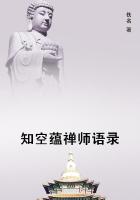for the soil was tilled by slaves, and entirely in the hands of the rich, who had no need of him."We find then, originally, village communities, which supported a numerous population in Italy of commoners, who wereboth warriors and cultivators, and lived under free, democratic institutions. The absolute right of individual property, orquiritary dominium , was constituted at Rome, and a powerful landed aristocracy was formed on this basis. It graduallyinvaded the ager publicus , the common domain, which still represented the primitive collective mark . Continual conquests,always furnishing new lands for usurpation and slaves to cultivate them, constantly augmented their wealth and power. Theattempt to re-constitute the old class of small free proprietors by means of agrarian laws failed. By the side of the largeestates cultivated by slaves, there was no place for them: just as m the Southern States of the American Union, smallindependent property could not subsist by the side of the large plantations worked by negroes. The plebeians obtainedpolitical rights: but as they succeeded in establishing no means of obtaining property, they soon derived no other benefitfrom their vote than that of selling it. The concentration of property in a few hands, by multiplying the number of slaves,dried up the natural source of wealth, free and responsible labour; and by destroying the sturdy race of proprietorcultivators, at once excellent soldiers and good citizens, who had given Rome the empire of the world, it destroyed thefoundation of republican institutions. Latifundia perdidere Itatiam , the irremediable fall of the Roman Empire justifies thephrase, which re-echoes through the centuries as a warning to modern societies. (13) The French Revolution, and mostcontinental legislation, has been inspired with the feeling, which dictated the Licinian laws and those of the Gracchi. Itendeavoured to create a nation of proprietors; such had been the actual result of primitive communities. To-day, in presenceof the democratic movement, by which we are impelled, and of the equalising tendencies which agitate the labouring classes,the one means of averting disaster and saving liberty, is to seek an organization, which may confer property on all citizensable to labour.
1. See an interesting essay by G. Arendt, Du regime de la p propriété territoriale, considéré dans ses rapports avec lemouvement politique .
2. Politics , v. 1.
3. Staatsh. der Ath ., I. p. 201.
4. Varro clearly marks this distinctive feature: Bina jugera a Romulo prismum divisa dicebantur viritim quae, quodheredem sequerentur, heredium vocantur .
5. See Schwegler, Römische Gesch . Tubingen, 1856, ii. 6, 444: and Moritz Voigt, die Bina jugera, Rhein. Museum fürPhilologie , 1866.
6. The Bina jugera , which are about an acre and a quarter, according to Mommsen, could only yield 800 kilogrammes ofcorn, or only 400 annually, as they would have to lie fallow every other year.
7. For proof see Maynz' excellent work, Cours de droit romain , ?14 and ?82.
8. See Maynz. Varro, de Re Rustica , I.2,9: Livy, v. 24, 30: Pliny, H.N. xviii. 3, 4: Columella, de Re Rustica , I. 3.
9. For the agrarian laws, consult Römische Rechtgeschichte of A. F. Budorif, p.38; Dr Wilhelm Ihne, Forschungen auf demGebiete der Römischen Verf assungsgeschichte , p.75. Ihne shews that if the plebeians were constantly indebted to thepatricians, it was not from having borrowed money of them; but because they had obtained lands from them, for which theyowed rents, which they were often unable to. pay. Ludwig Lange, Röminische Alterthümer , p. 140. The first volume of theCorpus inscriptionum latinarum: de agro publico populi romani (Mommsen). Laboulaye, Des lois agraires chez lexRomains . Revue de législation, vol ii. p. 385 and vol. III, 1; and especially Antonin Macé, Histoire de la propriété, dudomaine public et des lois agraires chez lex Romains ; Savigny, Traité de la possession d'après isa principes du droitromain ; Giraud, Recherches sur is droit de propriété chez lex Romains sous la république et sous l'empire ; Niehubr, History of Rome ; Antonin Macé, Histoire des lois agreires ; W. Drumann, Die Arbeiter und Communisten in Griechenlandund Rom .
10. Varro, ii. 10. Caecilius Claudius suffered great losses during the Civil wars, and yet left at his death 3,600 yoke of oxen,and 257,000 head of other cattle (Pliny, XXXIII, 47).
11. In the magnificent harangue put into his lips by Plutarch, after saying that one might travel for several days in Italywithout meeting a single free man, he exclaims: "The wild beasts have dens and lairs to retreat to, while those who fight andshed their blood in the defence of Italy, have nothing of their own but the light of the sun and the air which they breathe;houseless, and homeless, they wander in all directions with their wives and children."12. Livy, vi. 36, 11, Auderentne postulare patres ut cum bina jugera agri plebi dividerentur ipsis plus quinquagenta jugerahabere liceret?Sicul. Flacc. edit. Lacbm. p. 153, Antiqui agrum ex hoste captum victori populo per bina jugera partiti sunt.
13. The eminent German economist, Bruno Hildebrand, sums up an instructive treatise on the distribution of landed propertyin antiquity as follows "The agrarian history of antiquity shews us that all ancient lawgivers endeavoured to secure to everyone a certain inheritance, and to make every family participate in the benefits of landed property. Everywhere, however, theproprietors were too independent, and succeeded in centralizing and monopolizing the possession of the soil, and thus theancient world was ruined." Vertheilung des Grundeigenthums im AlterthumJahrbücker für Natioisalökon ., 1869, xxi. p.
129, 139, 155.
CHAPTER XIII.















